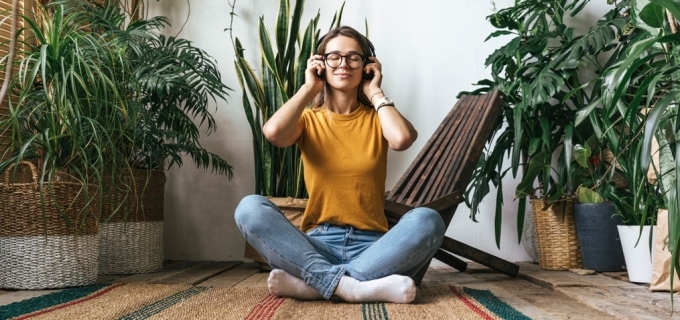Search for a doctor or hospital in your network.


Search for a doctor or hospital in your network.

Get News & Updates Directly To Your Inbox
About 40 million people have noise-related hearing loss from exposure to noise that is too loud for too long a time. And the growing popularity of earbuds and headphones isn’t helping.
The good news is that hearing loss from noise is preventable.
About one-quarter of adults age 20 to 69 have noise-related hearing loss, or about 40 million people, according to a study from the National Institutes of Health. ![]()
Damage to the hairs and nerve cells inside the ear cause hearing loss. Damage can come from long-term exposure to loud noises or from a short blast of noise like a gunshot. Some situations that can lead to hearing loss include:
In addition to loud noise, causes of hearing loss include:
Avoiding high risk situations and using ear protection are the keys to preventing hearing loss from noise.
Five ways to start protecting your hearing:
How much noise affects your hearing depends on how loud it is and how long it lasts. Avoiding noisy situations is best. If you can’t, using hearing protection can help. Find some good ear plugs or over-the-ear hearing protection. For long-term exposure like working in a factory or around loud equipment, it might be a good idea to invest in noise-canceling headphones.
If you think you may already have some hearing loss, check these signs of noise-induced hearing loss.  Talk to your doctor if you have any of these symptoms or if trouble hearing is causing problems in your life. Your doctor or a hearing specialist may be able to help.
Talk to your doctor if you have any of these symptoms or if trouble hearing is causing problems in your life. Your doctor or a hearing specialist may be able to help.
In general, if you need to shout to be heard, it’s too loud. Find out how loud different sounds are with this audio infographic from the CDC. ![]()
Blue Cross and Blue Shield of Montana, a Division of Health Care Service Corporation,
a Mutual Legal Reserve Company, an Independent Licensee of the Blue Cross and Blue Shield Association
© Copyright 2026 Health Care Service Corporation. All Rights Reserved.
Verint is an operating division of Verint Americas, Inc., an independent company that provides and hosts an online community platform for blogging and access to social media for Blue Cross and Blue Shield of Montana.
![]() File is in portable document format (PDF). To view this file, you may need to install a PDF reader program. Most PDF readers are a free download. One option is Adobe® Reader® which has a built-in screen reader. Other Adobe accessibility tools and information can be downloaded at https://www.adobe.com/trust/accessibility.html.
File is in portable document format (PDF). To view this file, you may need to install a PDF reader program. Most PDF readers are a free download. One option is Adobe® Reader® which has a built-in screen reader. Other Adobe accessibility tools and information can be downloaded at https://www.adobe.com/trust/accessibility.html. ![]()
![]() You are leaving this website/app ("site"). This new site may be offered by a vendor or an independent third party. The site may also contain non-Medicare related information. Some sites may require you to agree to their terms of use and privacy policy.
You are leaving this website/app ("site"). This new site may be offered by a vendor or an independent third party. The site may also contain non-Medicare related information. Some sites may require you to agree to their terms of use and privacy policy.
Powered by Verint